Geneva seems oblivious to the end-of-winter freeze that has paralysed other parts of Europe. The trains and trams continue to run on time and heavy drifts of snow are ploughed into tidy banks. I’m here with a small group established to advise the Director-General of the UN’s International Organization for Migration. IOM’s job over the past 65 years has been to work with governments to move people safely and humanely in war and in peace. The current D-G, Ambassador William Swing, will soon retire after eight gruelling years at the helm. One would be fortunate to still be operating, at 83, with a fraction of Bill’s energy and intellectual rigour. Thanking us for our service, he expresses the hope that one day safe migration will not just be a birth-right of the global elite – but rather, a common privilege available to all, including those who now stand on the outside looking in. This might sound revolutionary but such a view is not predicated on eliminating borders or compromising national identities. More realistic than idealistic, it sees movement as an inevitable part of the human condition; perhaps the most important force in human progress.
Racing to change planes in Dubai I learn, via text, that I have just been elected President of the International Catholic Migration Commission. ICMC’s mission is to protect and serve uprooted people, including refugees, asylum seekers, internally displaced people, victims of human trafficking, and migrants – regardless of faith, race, ethnicity or nationality. I’ve long admired its approach – a combination of principled advocacy and practical good works. Since 1951 ICMC has resettled over a million refugees and provided much needed protection and support to many more. My predecessor is the late Peter Sutherland: former Attorney-General of Ireland; Director of the WTO; Chairman of BP and Goldman-Sachs; and Special Representative of the Secretary-General on Migration. Sutherland’s approach was straightforward, if combative. For him, defending the free movement of capital, goods and services while opposing the liberalisation of migration was an intellectually bankrupt and morally indefensible position. He was equally scornful of short-sighted unilateralism, arguing that migration is indeed inevitable and that working together to craft common approaches is the only way forward. I think he is right on both fronts.
Back in Sydney for the sixth meeting of the Asia Dialogue on Forced Migration. ADFM was set up three years ago to provide independent, informal guidance to governments on dealing with our region’s version of the ‘wicked problem’. Unlike so many organisations working in this space, ADFM has modest goals and an even more modest budget, using the considerable influence of its convenors to bring together individuals who would never normally find themselves in the same room to talk frankly about what’s wrong and what needs to be done. The current group includes senior government and UN officials; ex-diplomats turned policy analysts; edgy researchers; and frontline operators dealing with the grim consequences of our collective, spectacular failure to manage migration. With full rein under the Chatham House Rule to say what they really think and no patience for sentimentality, few hold back. ADFM’s impact is hard to assess using today’s favoured metrics but I’m not the only one to see these gatherings as a blessed relief from the talkfests that masquerade as serious policy debate on migration. In this meeting, our main topic of discussion is the unfolding crisis in Cox’s Bazaar, Southern Bangladesh, just over the border from Myanmar: specifically, what regional players can do to prevent things getting even worse. Since August last year, more than 670,000 Rohingya Muslim refugees have fled Rakhine State to join the hundreds of thousands who earlier managed to escape the extreme violence and discrimination that has come to define the lives of this long-persecuted minority. This latest exodus has created the world’s largest refugee camp: more than a million women, men and children crowded into precarious shelters on sun-baked earth that will turn into deep mud when the monsoon rains arrive. Those on the ground talk of the inevitability of an ‘emergency within an emergency’: referring not just to the imminent reality of flood and landslides, but also the extreme risk of fire and disease. The government of Bangladesh puts the rest of the international community to shame. While unable to provide much direct assistance, it has risen above us all to help in practical ways and, most critically, to affirm that no Rohingya will be forcibly returned to face persecution. Recently, Bangladesh concluded an agreement with Myanmar to encourage voluntary repatriation. But is that possible? Even if they wanted to return to their previous wretched, stateless existence, most of these refugees literally have nowhere to go back to: homes, livelihoods and communities have been obliterated.
Meanwhile, the rest of the world looks away. Several regional countries exert massive economic (and political) influence on Myanmar but have chosen not to exercise it in favour of the Rohingya. Others are also keeping quiet, fearful of secondary movements from Bangladesh that might compromise their own interests. Richer states are salving their conscience and staving off discussion of third-country resettlement by drip-feeding the barely functioning humanitarian effort in Bangladesh. Depressing, but not unusual. What worries me most is the uniform timidity, the complicity of silence in the face of such egregious injustice meted out against a persecuted minority by a single bad actor. Political and migration crises are rarely so straightforward and it shouldn’t be this hard. In Bangladesh, Pope Francis asked the Rohingya to forgive our collective indifference. As yet, we have done nothing to deserve that forgiveness.
Got something to add? Join the discussion and comment below.
Get 10 issues for just $10
Subscribe to The Spectator Australia today for the next 10 magazine issues, plus full online access, for just $10.
You might disagree with half of it, but you’ll enjoy reading all of it. Try your first month for free, then just $2 a week for the remainder of your first year.

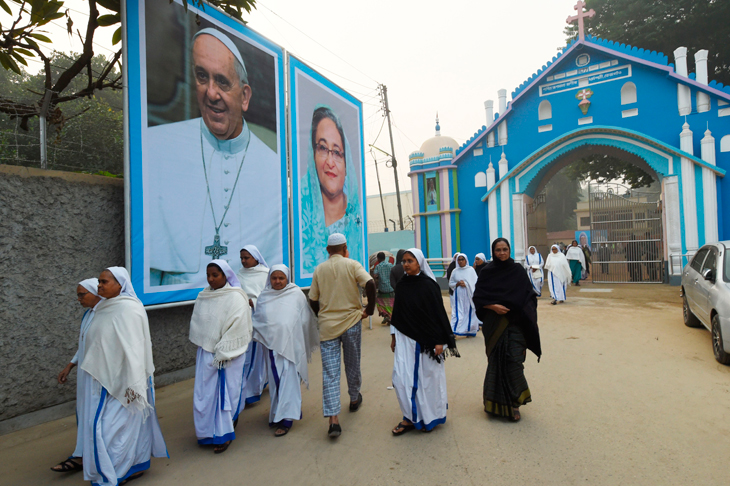
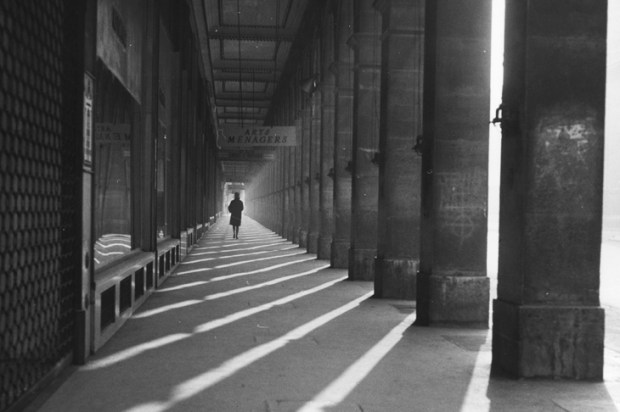
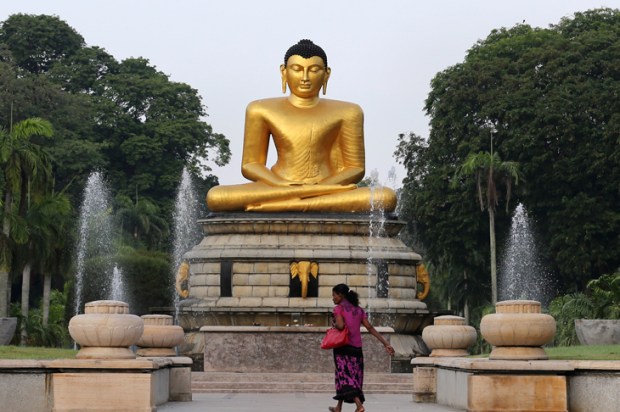
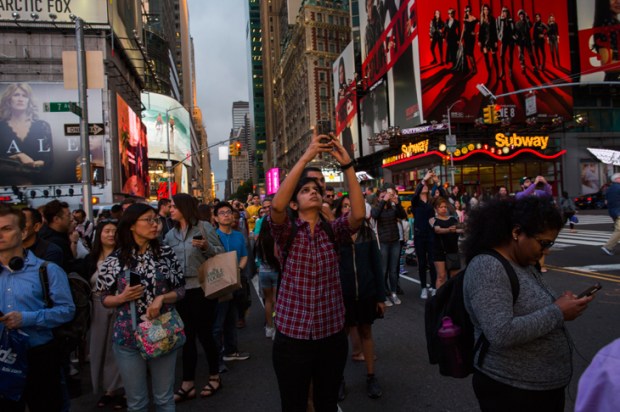
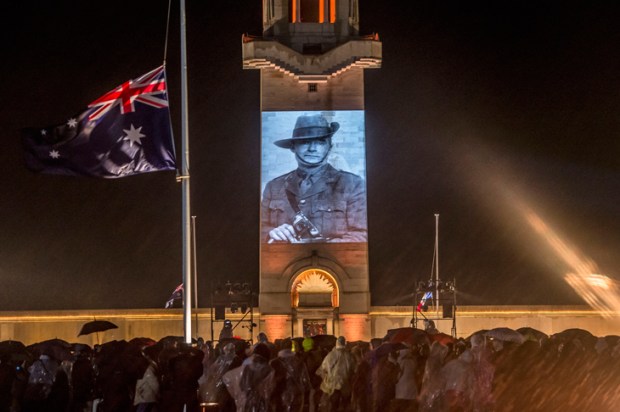
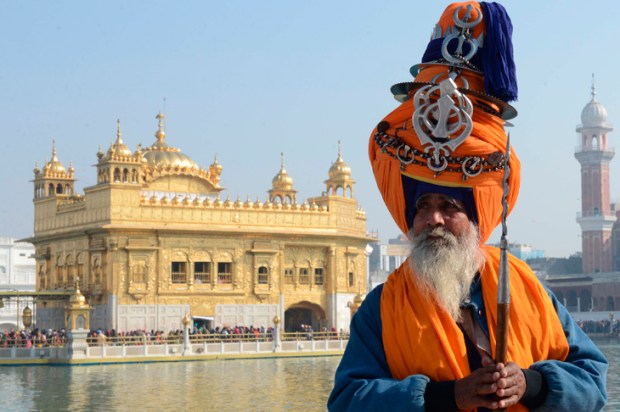







Comments
Don't miss out
Join the conversation with other Spectator Australia readers. Subscribe to leave a comment.
SUBSCRIBEAlready a subscriber? Log in